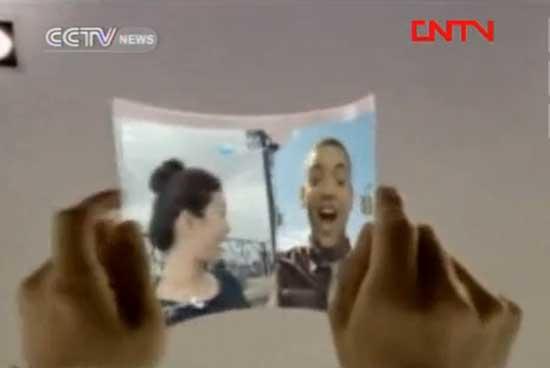|
South Korean scientists say they have developed flexible memory technology that could support bendable computer platforms for e-books and cell phones.
Previous attempts have been hampered by cell-to-cell interference. But now researchers say the problem has been resolved. What's ahead could be a new generation of ultra-thin, lightweight computers than can be rolled up, folded or even integrated with clothing.
In a South Korean laboratory, scientists have just developed this, so that computer makers like Samsung, can produce these.
This is something you cannot currently do with a computer. Bend and fold it. Just like a paperback book.
But, as this concept video demonstrates, companies like Samsung are preparing for a new generation of flexible memory technology, technology that Lee Keon-Jae of the Advanced Institute of Science says has finally been proven to work.
Professor Lee Keon-Jae, dept of materials science &eng., Kaist, said, "If these flexible technologies are realized in our real life the impact would be much bigger than what we expect such as a freely bendable and attachable computer can be possible."
That could, one day, even mean computers you can wear. The major problem in creating bendable computers has been how to create flexible memory chips.
In the past, electrical interference from the memory cells disrupted the computer systems.
But scientists at the KAIST Lab say they have found a solution by developing a silicon transistor and other components that will not be disrupted by a flexible platform.
The result could lead to life-changing applications.
 |
| South Korean scientists say they have developed flexible memory technology that could support bendable computer platforms for e-books and cell phones. |
Professor Lee Keon-Jae said, "Flexible consumer electronics such as computer, display, smartphone attached to the wrist can be an interesting application field. In addition, implantable-biomedical devices conformably placed on the heart, corrugated brain or organs, or rolled upon blood vessels for diagnosing or even treating disease is exciting and new field area that can improve the quality of human life."
Lee says this is not too futuristic. He believes the computer industry is on the verge of a truly flexible future.
(CNTV December 21, 2011)
|

